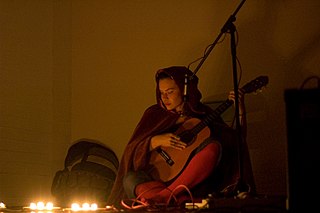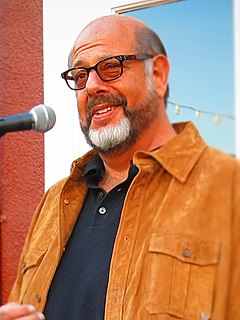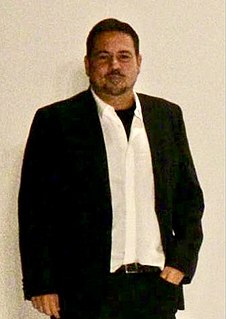A Quote by Arundhati Roy
The [Booker] prize was actually responsible in many ways for my political activism. I won this thing and I was suddenly the darling of the new emerging Indian middle class – they needed a princess. They had the wrong woman. I had this light shining on me at the time, and I knew that I had the stage to say something about what was happening in my country. What is exciting about what I have done since is that writing has become a weapon, some kind of ammunition.
Quote Topics
About
Activism
Actually
Ammunition
Become
Class
Country
Darling
Done
Emerging
Exciting
Had
Happening
Indian
Kind
Knew
Light
Many
Me
Middle
Middle Class
Needed
New
Political
Political Activism
Princess
Prize
Responsible
Say
Shining
Since
Some
Something
Stage
Suddenly
Thing
Time
Ways
Weapon
Woman
Writing
Wrong
Related Quotes
I've always been curious about people's psychedelic experiences, and I kind of had this assumption that I was going to have some kind of crazy mindblowing psychedelia thing happening, but actually, it was very quiet, and I didn't have any hallucinations at all. Nothing changed, except that suddenly I could hear the voice of my conscience, which I didn't ever think of as being a real voice. And ever since having that experience, I've had that voice in my head and followed it occasionally.
I really enjoy work to a purpose. Maybe that makes me kind of strange. In some ways - and this is going to sound awful - it could be that writing is the worst job that I've ever had. Because it's so much more important to me and there's so much more opportunity for failure and I have so many people depending on me. In some ways it's the most satisfying, the most gratifying, and the most rewarding job I've ever had. But I actually would say it's probably the worst job I've ever had too.
At this rate, I'd be lucky if I wrote a page a day. Then I knew what the problem was. I needed experience. How could I write about life when I'd never had a love affair or a baby or even seen anybody die? A girl I knew had just won a prize for a short story about her adventures among the pygmies in Africa. How could I compete with that sort of thing?
I won the argument against the knife that night, but barely. I had some other good ideas around that time--about how jumping off a building or blowing my brains out with a gun might stop the suffering. but something about spending a night with a knife in my hand did it. The next morning I called my friend Susan as the sun came up, begged her to help me. I don't think a woman in the whole history of my family had ever done that before, had ever sat in the middle of the road like that and said, in the middle of her life, "I cannot walk another step further--somebody has to help me.
Distances and days existed in themselves then; they all had a story. They were not barriers. If a person wanted to get to the moon, there is a way; it all depended on whether you knew the directions, on whether you knew the story of how others before you had gone. He had believed in the stories for a long time, until the teachers at Indian school taught him not to believe in that kind of "nonsense". But they had been wrong.
One of the things about me is that I actually had marginally middle-class living from writing. For years and years, I actually wrote so much through the '70s and '80s that I made a living. And very rarely have I had to take another job. And now it's impossible for anybody coming up to make such a living. They've pissed in the temple, you know?
I knew it,’ she says. ‘I knew I had met you before. I knew it the first time I saw your photograph. It’s as if we had to meet again at some point in this life. I talked to my friends about it, but they thought I was crazy, that thousands of people must say the same thing about thousands of other people every day. I thought they must be right, but life… life brought you to me. You came to find me, didn’t you?
I'm one of relatively few stage-trained actors who doesn't much like acting on stage. It feels kind of like riding the Cyclone at Coney Island, which I did when I was eight. When it was all over, I was glad I had done it, but most of the time when it was actually happening, I was just kind of hanging on for dear life.
When I was about 13, I met the coolest, chicest young woman I had ever seen. She was a neighbor of mine who became a fashion designer and had a small design studio. She taught me so many things about style and fashion. I had always loved making things, so when she told me about her career in fashion, I knew I had found my path.






































